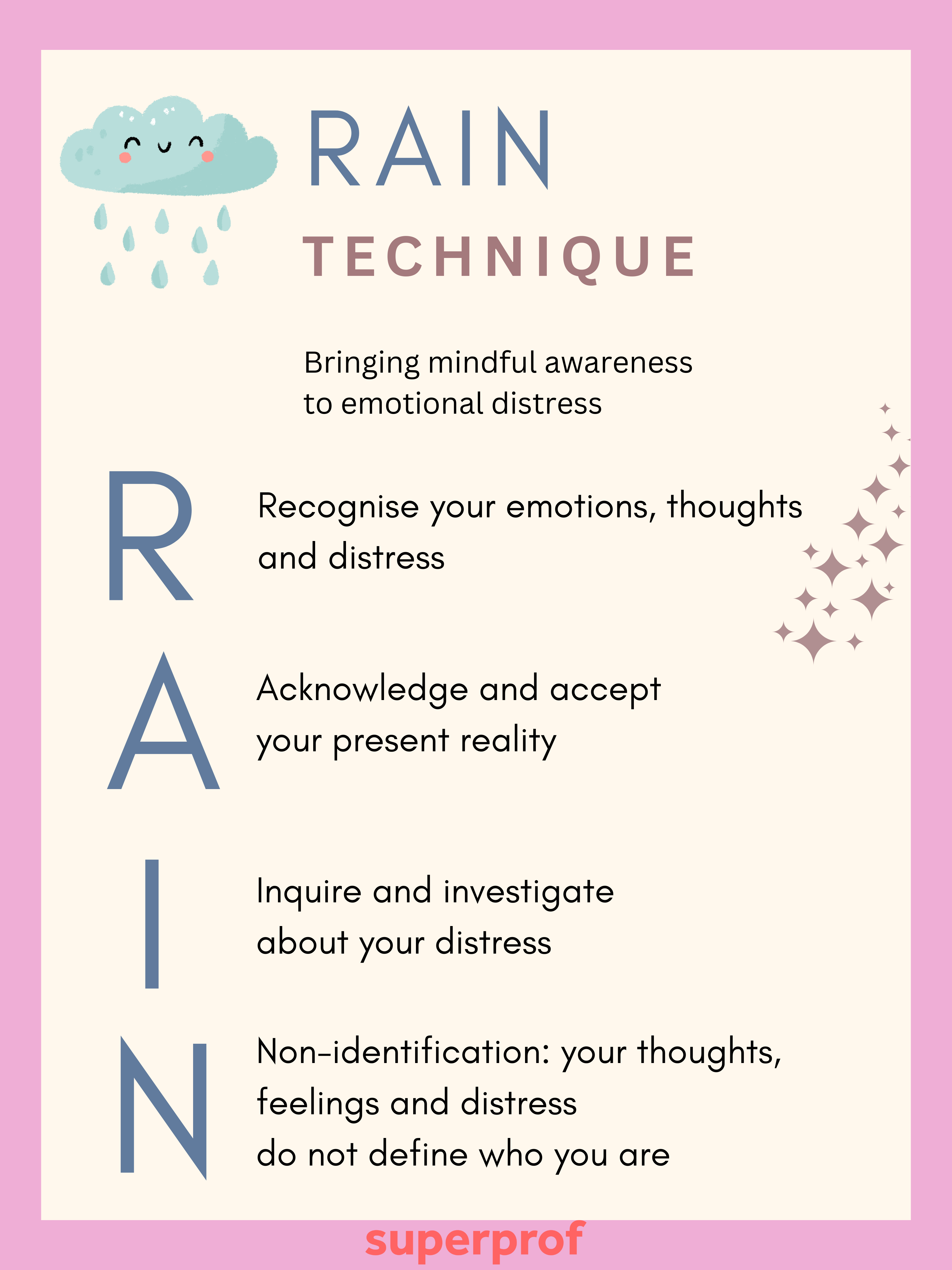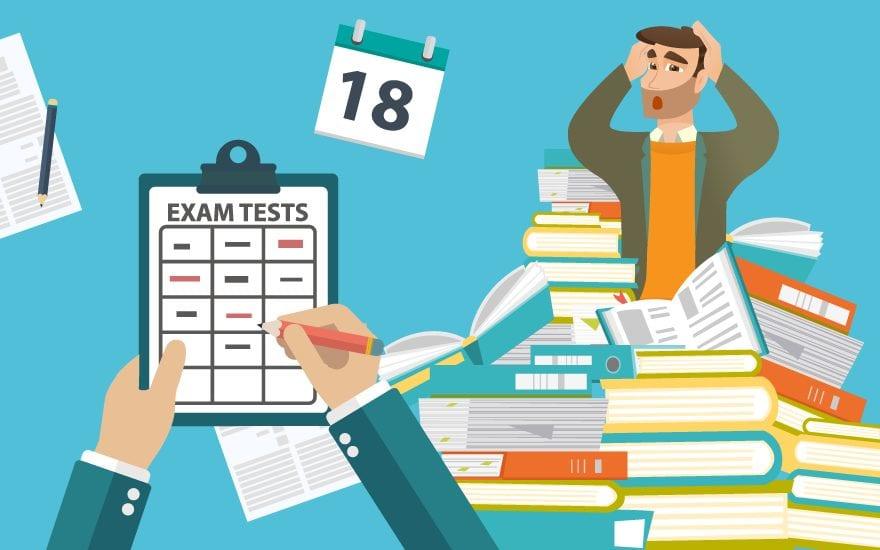It would be hard to argue with the idea that every student is unique in their learning styles and study habits; even learning needs differ from one student to the next.
Still, among the thousands of students who have sat school-leaving and university-qualifying exams, we can discern common threads. From study skills to memorization techniques like mnemonics and mind maps – even those who practice procrastination and then, in a panic, resort to cramming the week before their exams are scheduled…
It takes all types to make a student body; that is perhaps why there is so much talk over what works best to score the highest marks on the most important exams of your life.
Whether you believe you fit any particular student profile or you find yourself selecting traits from standard student portraits – from the hard worker bound to ace their exams to the lollygagger feeling the pinch of time. Superprof puts together an overview of the most effective exam revision techniques and materials for you to draw from.

Best Revision Techniques In 2024
It’s that time for exams, and you've put in the effort to study well. Naturally, you aim to perform your best. Our top 8 tips for revising can assist you in maintaining a calm and focused mindset during your exams.
Pomodoro Technique
The Pomodoro Technique is a time management method developed by Francesco Cirillo in the late 1980s. It uses a timer to break work into intervals, traditionally 25 minutes in length, separated by short breaks.
The technique involves setting a timer for 25 minutes, working on a task until the timer rings, taking a short break, and then repeating the process. After four cycles, a longer break is taken. This method aims to improve focus and productivity.
The Pomodoro technique is suitable for you if:
- You feel stressed by the amount of revision you need to do, and as a result, end up avoiding it altogether.
- You easily get sidetracked by various distractions, such as checking your phone or organizing your surroundings, instead of focusing on revision.
- You find it difficult to stay motivated and consider revision to be uninteresting.
- You have upcoming exams and a limited time to complete your revision.
You can then supplement those pages with further exam preparation resources, the full extent of which are listed in our companion article.
Spaced Repetition And The 2357 Method
The 2357 method is a scientifically proven approach that helps in reviewing information at shorter intervals, enhancing memory retention, and reducing the likelihood of forgetting important details. It is an effective way to organize revision sessions leading up to exams.
Spaced repetition is a scientifically proven learning technique that involves reviewing information at increasing intervals, which boosts memory and reduces the likelihood of forgetting.
The 2357 method is a way to plan out revision sessions using spaced repetition, where you review the material 2 days after initially learning it, then 3 days after that, 5 days after that, and 7 days after that. This interval-based approach is effective for improving long-term retention
The 2-3-5-7 study method provides a structured plan for reviewing material, to reinforce information at the optimal intervals to enhance long-term recall. This approach can be particularly useful for exam preparation, where retaining knowledge over an extended period is crucial for success.
Flashcards
Flashcards are an effective study tool for revision as they promote active recall, which aids in remembering information more effectively. They are portable and can be used anytime, anywhere to review key concepts.
There are different types of flashcards available for revision, such as traditional paper flashcards, digital flashcard apps, and interactive online flashcards. These options cater to different learning styles and preferences.
To maximize the benefits of flashcards, it is important to create clear and concise prompts on one side and detailed information on the other. Using visuals, colors, and mnemonics can also enhance memory retention when using flashcards
Flash Cards Apps For Free
Mochi Cards
Mochi Cards is a free flashcard app that uses spaced repetition to help users learn and retain information. It has a clean interface and allows users to create and customize their own flashcards for free.
Anki
Anki is a digital flashcard application that uses spaced repetition to help users memorize and retain information more effectively. Users can create their flashcard decks or download pre-made ones from the Anki community.
Knowt
Knowt Flashcards is a study tool designed to help students learn and retain information through the use of digital flashcards. It offers features like spaced repetition, image uploads, and compatibility with various devices.
Knowt Flashcards allows users to create custom flashcards, import existing sets, quiz themselves, and track their progress over time. The platform also provides analytics to help users identify areas that require more focus.
Blurting
Blurting is a study technique where you write down everything you can remember about a topic without worrying about the order or correctness at first. This allows you to identify gaps in your knowledge and areas that need more revision.
The blurting method can be an effective revision technique as it allows you to actively recall information from memory, rather than just passively reviewing notes.
This process helps strengthen your understanding and retention of the material. It also reveals areas where you may need to focus more study
To use the blurting method, set a timer for a few minutes and write down everything you can remember about a topic. Don't worry about order or correctness initially. After the time is up, review your notes and identify what you've missed or gotten wrong. This feedback can guide your future revision

How to Create an Effective Timetable For Revision
Creating a revision timetable offers numerous benefits. It not only helps you stay organized but also allows you to maintain a healthy balance between studying and your personal life as you prepare for your exams.
Here is how a revision timetable can be advantageous for you.
- ? Set Clear Goals: Define what you want to achieve during your revision period to create a focused timetable. Include specific topics, subjects, or skills you need to cover. Break down larger tasks into smaller, manageable chunks.
- ? Time Blocking: Allocate dedicated time slots in your timetable for each subject or topic. Use techniques like the Pomodoro method (working for 25 minutes, then taking a short break) to maintain focus and productivity.
- ? Regular Reviews and Adjustments: Periodically review your timetable to see if you are on track with your goals. Adjust the schedule as needed based on progress or unexpected events. Flexibility is key to ensuring your timetable remains effective.
Before you create your revision timetable, it's important to prioritize your subjects. Identify your strongest and weakest subjects to gain insight into which topics require more attention.
Once you've identified the topics that need more focus, allocate more time to those subjects in your revision timetable. It's still important to make time for topics you feel confident about, but be strategic about the time you allocate to each one.
Break down each subject into smaller chunks to better organize your study time. This will help you prioritize the subjects that require more revision and give you an overview of how much time to allocate to each topic.
Use different colors to represent each subject in your revision timetable. This visual aid will help you easily see the distribution of study time for each subject and identify where more time needs to be allocated.
Schedule regular breaks during your study sessions. Taking short breaks every 30 to 35 minutes will help you maintain focus and approach each topic with a fresh perspective. Stepping away from studying can also aid in problem-solving and prevent burnout.
You may be dismayed to find that you only have about two hours left per day for a study session but that is more than enough time to go over past exam papers and review your notes.
Go Digital! It's okay if you prefer creating a hand-drawn revision timetable, but you might find a digital one more practical. Utilizing the calendar on your phone, email, or a timetable app ensures that you always have your revision schedule accessible. Additionally, making adjustments to a digital timetable is much easier when flexibility is needed, compared to a written one.
A final word of advice: don’t beat yourself up if, on any given day, you simply don’t feel like studying. It happens to the best students; it doesn’t mean you’re headed for a certain exam failure. However, if the problem becomes persistent, you might want to find out how to arrange your review timetable in such a way that you will have at least one day off from studying per week.
The Importance of Sleep on Your Revision

- Embrace good sleeping habits now so you won't feel wiped out before the exam! Image by Hebi B. from Pixabay
You will hear the phrase ‘work-life balance’ often once you’ve entered the productive phase of your life; when you start earning your living. And, just like the adults in your life who might work long hours and have precious little free time to suffer physically and emotionally, you too might find it hard to maintain a positive and healthy outlook in the run-up to your exam period. It’s not that you need easier subjects, fewer exams or even no exams; you only need to make sure you eat a healthy balance of foods without skipping any meals and get enough sleep.
Even before the life-determining exams season rolled around, UK health specialists expressed concern over how little sleep students were getting. Technology is an easy scapegoat. Between watching videos and the general ‘fear of missing out’ or FOMO, the teens of today are sacrificing sleep to the latest ‘thing’.
Exaggeration? Maybe, but a recent independent survey that concluded teens feel significant anxiety if separated from their phones for more than a few hours seems to bear that assessment out. Whatever your reasons for getting less than eight hours of sleep, even if it’s going over exam questions and visualizing academic success, is not serving you well.
Quite the contrary! After a few nights of inadequate sleep, you might find it difficult to remember salient points of lecture notes; you may even find yourself re-reading your class notes without really memorizing them. If you maintain a condition of sleep deficit, not even the most foolproof exam technique will bring exam success.
A critical aspect of time management in high-stress periods like the run-up to your exams is to take optimal care of yourself; sleeping well and long enough is a key ingredient of mental endurance and health. Listing all of the reasons quality and quantity of sleep matter to the various aspects of your health is a topic for another time.
What you need to know right now is that sleep is so important to your revision because, among other things, it helps commit to long-term memory what you’ve studied today. In fact, managing to get enough quality sleep is considered to be a part of effective study skills.
Why not include getting eight hours of sleep among your study strategies? When you do, don’t forget to turn your phone, tablet, and/or computer off and, preferably, leave it in another room so it doesn’t tempt you to take one last look at your social media feed.
Good luck! Won’t you let us know how you got on? Check out three articles that may interest you below:
Summarise with AI:






















